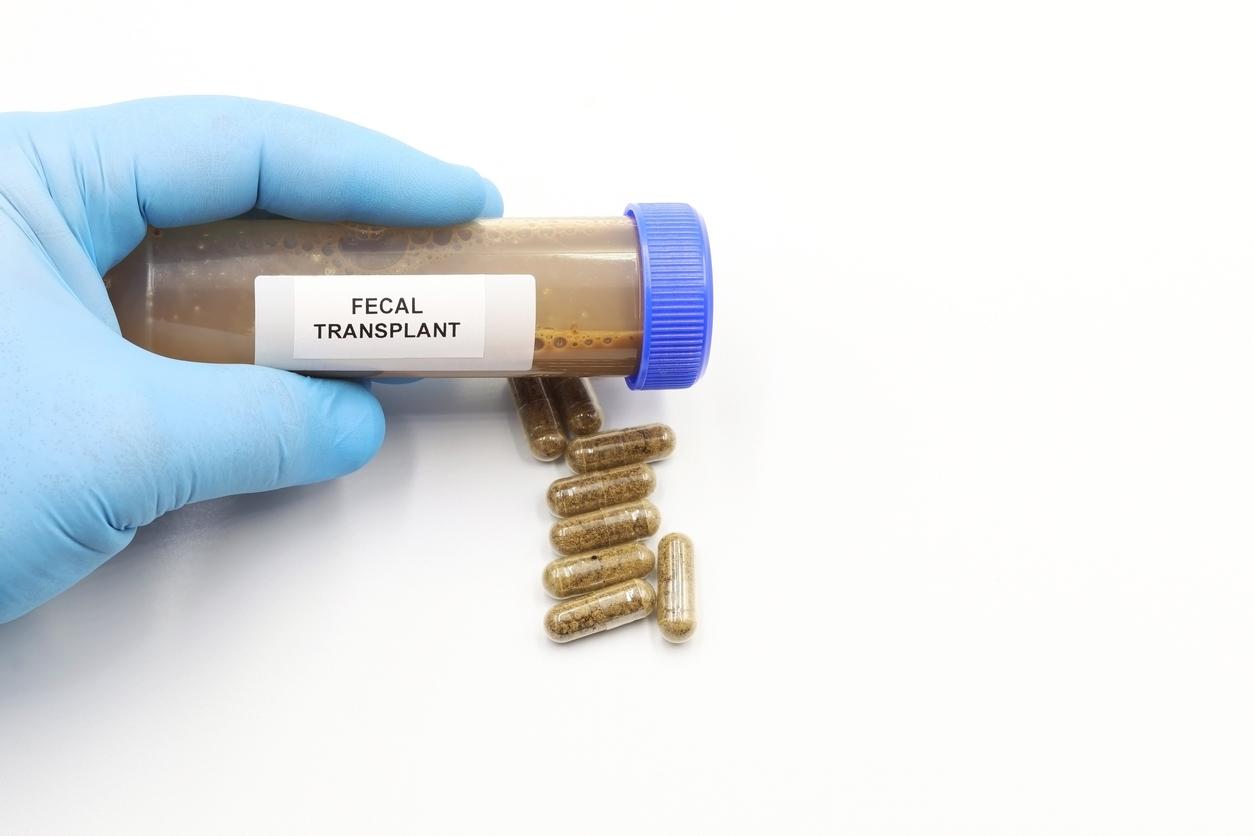In one of the most comprehensive real-world analyses to date, Danish researchers report that fecal microbiota transplantation (FMT) was most effective against Clostridioides difficile infection (CDI) when administered as multidose capsules or via colonoscopy and after an extended period of antibiotic pretreatment.
The study, published late last week in eClinical Medicine, also found that, in patients for whom FMT was initially unsuccessful, repeat FMT was more effective than antibiotic treatment alone.
FMT involves the transfer of stool from healthy donors to help restore the gut microbiome of patients with CDI, which has traditionally been treated with antibiotics. It's been shown to be highly effective as a treatment for patients with recurrent CDI that's not responding to antibiotic therapy and is endorsed by several medical societies for managing recurrent CDI.
But up to one third of CDI patients don't adequately respond to their first FMT treatment, and the factors that may influence the success of FMT, such as delivery method and antibiotic pretreatment, have largely been unexplored.
"This study aimed to investigate therapeutic decisions and clinical courses in a well-defined cohort of consecutively included patients with CDI treated with FMT to inform a rational clinical approach," researchers from Aarhus University Hospital wrote.
Longer antibiotic pretreatment tied to higher cure rates
The multisite cohort study, conducted from May 2016 through December 2023, included CDI patients treated with FMT through capsules, colonoscopy, or nasojejunal tube (one placed through the nose, past the stomach, and into the small intestine). All patients received antibiotic pretreatment with vancomycin or fidaxomicin before FMT.
The primary outcome was C difficile–associated diarrhea (CDAD) 8 weeks after treatment. Applying multivariable mixed-effect regression methods, the researchers assessed the impact of antibiotic pretreatment and length, FMT dosing and administration, and post-FMT prophylactic vancomycin during non-CDI antibiotic use on patient outcomes.
The 1,170 patients (median age, 71; 58% female) included in the study received 1,643 FMT treatments. Vancomycin was by far the most common antibiotic pretreatment (91% of patients), and capsule FMT was the most frequently used method of administration (80%).
Among the included patients, 699 (60%) were cured of CDAD after 8 weeks following their first FMT treatment. The cure rate among the different study sites ranged from 46% to 68%. Following repeated FMT treatments, 944 patients (81%) achieved CDAD cure at 8 weeks.
The primary multivariable regression analysis found that receipt of prolonged antibiotic pretreatment (31-plus days) was associated with higher cure rates (65%) compared with those who received 1 to 5 days of antibiotic treatment (45%) (odds ratio [OR], 1.22; 95% confidence interval [CI], 1.10 to 1.36). FMT administration through oral, multidose capsules (69%; OR, 1.19; 95% CI, 1.11 to 1.27) and colonoscopy (69%; OR, 1.14; 95% CI, 1.04 to 1.24) resulted in higher cure rates compared with a one-capsule dose of FMT.
"This is a clinically significant finding, as encapsulated FMT is patient-friendly and scalable compared to colonoscopy," the study authors wrote.
CDAD cure rates did not differ based on whether patients received vancomycin or fidaxomicin as pretreatment (OR, 0.98; 95% CI, 0.91 to 1.07). And in patients who needed non-CDI antibiotics following FMT, no difference was observed between those who received prophylactic vancomycin and those who didn't.
In patients with CDI recurrence following the initial FMT treatment, the cure rate was higher with repeated FMT treatments (52%) than with antibiotic treatment alone (35%). Some patients received up to five FMT treatments.
'More effective than all antibiotic treatment strategies'
The authors say that, while more research is needed to understand why longer pretreatment duration and multidose FMT capsules were associated with higher cure rates, the findings support using FMT over any antibiotic treatment strategy if FMT is available.
"FMT was more effective than all antibiotic treatment strategies," they wrote. "Despite potential confounding by indication, with some treatment strategies selectively used in patient groups expected to have lower cure rates, these data may guide evidence-based therapeutic strategies."
They add that future guidelines should address FMT dosing, administration methods, and pretreatment duration to help clinicians choose the strategies with the highest likelihood of success.
























